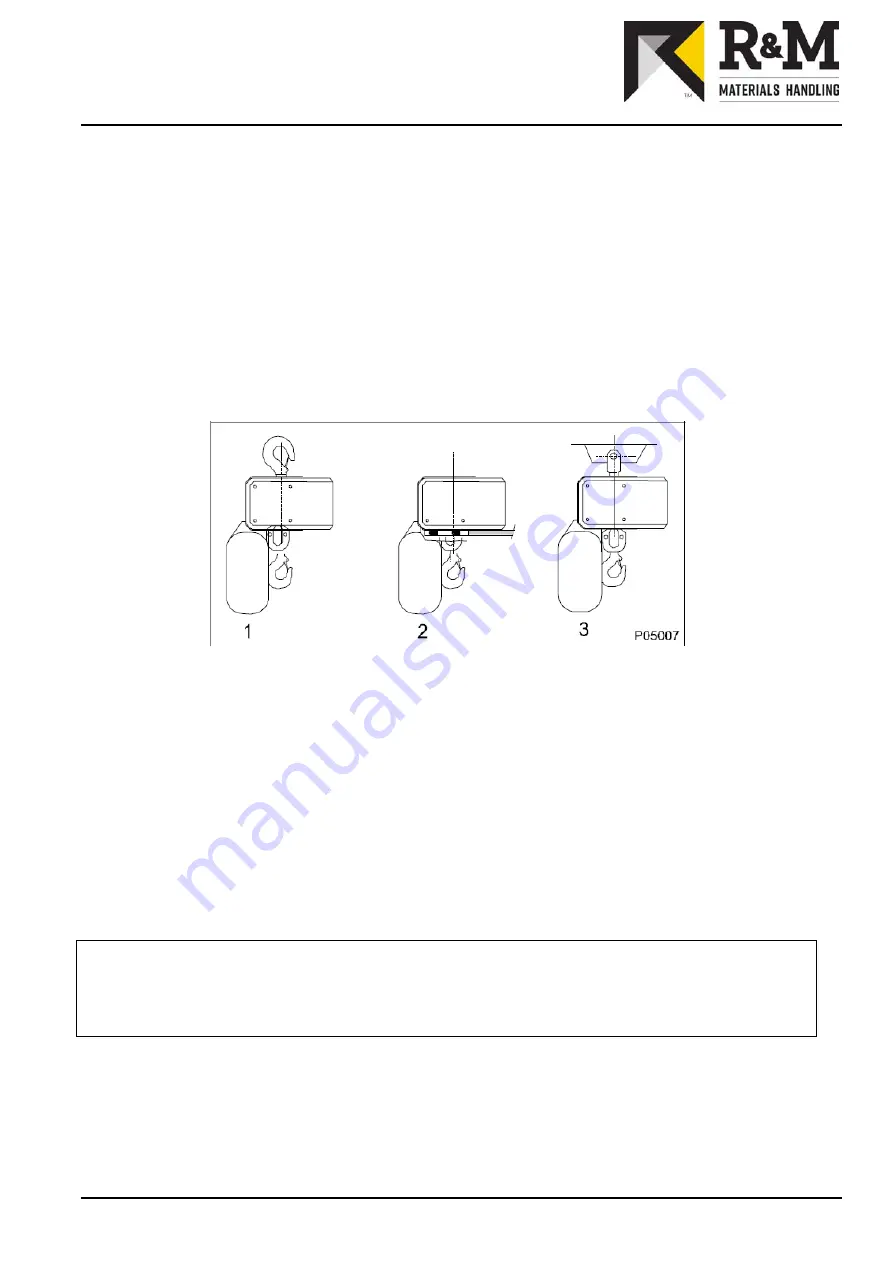
LM01 I&M MANUAL/EN/11.30.2010
10/65
This document and the information contained herein, is the exclusive property of R&M MATERIALS HANDLING, INC. and represents a non-public, confidential and proprietary trade secret
that may not be reproduced, disclosed to third parties, altered or otherwise emplo
yed in any manner whatsoever without the express written consent of R&M MATERIALS HANDLING, INC.
Copyright © (2010) R&M MATERIALS HANDLING, INC. All rights reserved.
2.3
Mounting
Below are three types of mounting:
1.
Hook Mounted
2.
Base Mounted
3.
Coupling Mounted
4.
Trolley Mounted – NOT SHOWN – is accomplished via a Hook or Trolley Coupling to the Trolley
Assembly.
Figure 1. Mounting Types
For all trolley-mounted hoists, refer to appropriate trolley manual for trolley installation instructions.
After a trolley-mounted hoist has been assembled to a beam, check for balance. Each trolley-mounted hoist
is balanced at the factory for “as shipped” condition. Any auxiliary devices (radio control, lights, hose reels,
etc.) furnished and mounted by “others” may require additional counterweight. Hoists must hang straight
without a load or there will be a noticeable “kick” when a load is applied to hook. An unbalanced hoist /
trolley may result in damage to equipment.
2.4
Load Hook Throat Opening
m
CAUTION: ANSI B30.16-1998 recommends that the throat opening of a load hook be measured
and recorded prior to putting a hoist into service and that a gage be made to provide a quick
visual inspection for a bent hook as required during routine inspections. Record this
information before initial start-up. See Section 5.8 for more detailed hook information.






























